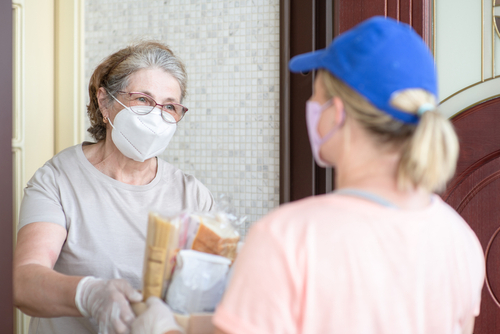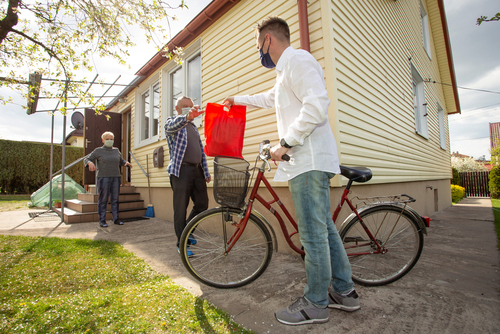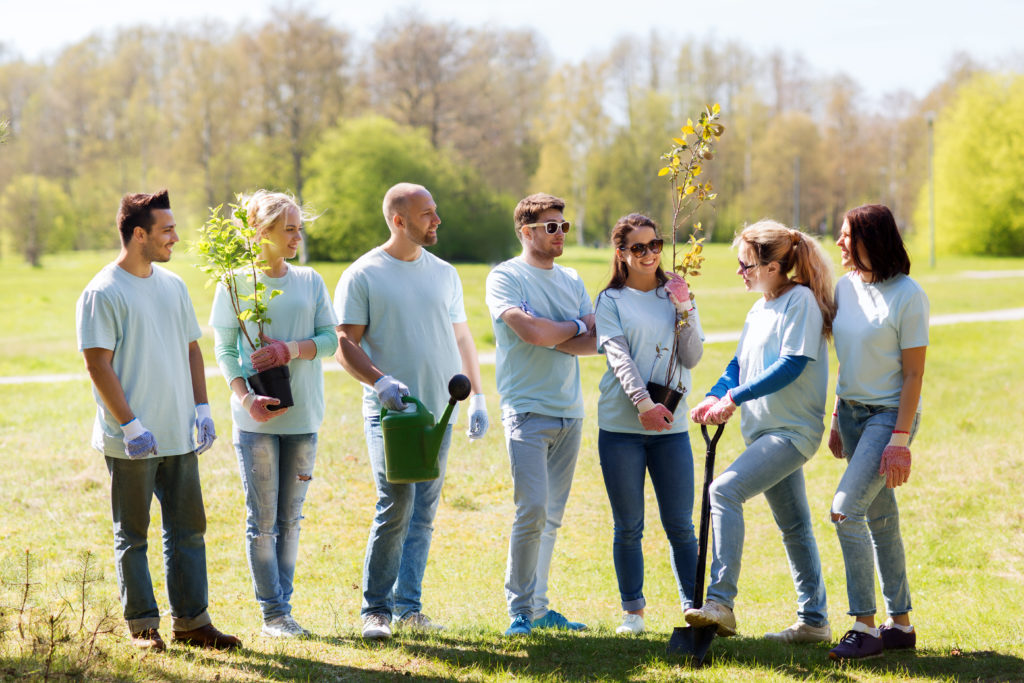I’m a giver. Sure you may call it codependent, but I like to think of it as giving.
I tend to prioritize other’s needs above my own. The good is that I get a lot of satisfaction out of volunteering. The bad, well, I’d be more than happy to share with you details about the bad part, but only if I could pay for an hour of your time once per week.
I started volunteering at a young age. As a kid I’d spend summer days supporting physically disabled kids with my mother instead of hanging out with my friends. I spent Thanksgivings feeding the less fortunate.
At an early age volunteering became an embodiment of who I am.
I give to the homeless. I always acknowledge those less fortunate and feel awkward when I walk by without giving them a little something.
I volunteer for shelters, community efforts and various non-profits. I go to events and work 10-12 hour volunteer shifts for days on end with nary a complaint.
But then a global pandemic descended upon us and suddenly things have changed.
It’s weird. When other disasters have hit in the past, I’d be driven to volunteer. Immediately after the Northridge quake I began efforts to search and rebuild. The morning after the Rodney King LA Riots, I went down to Watts and Compton and started cleaning and rebuilding. I did fundraising after 9/11 and food drives in the 2008 recession. I am always eager to help and give back.
But in a global pandemic?
No thanks.
I’ve found myself in an uber-selfish mode. I am scared to help. I am more hesitant to give to the needy because I don’t want to risk sickness. I am more hesitant to volunteer for organizations or events because I don’t want to be in crowds. But the irony of this is that one of the most selfless things one can do these days is to avoid volunteering in crowds with others. It’s important that we don’t co-mingle until we’re on the other side of COVID-19.
However, once there is a vaccine, will my mindset change? It’s so easy to be selfish, to stay stuck in my own little world. It’s so easy to stay scared even when the fear should subside.
In the end, we still don’t knows the long term impact this virus will have on volunteering.
Because of it’s ease in spreading disease, cash is quickly becoming a thing of the past. If we move even further to a cashless society, what happens to the homeless and mentally ill who live off the generosity of others?
Will it be more difficult for events to get volunteers to help? Have we just knocked off the entire 65+ age group from ever volunteering again?

Will face masks and gloves be common place for volunteers? Health checks for all? Will higher risk people stop volunteering for fear of disease? Will healthy people stop volunteering for fear of the higher risk people?
The supplies alone may cost more for organizations to prepare for volunteers. So the ones who can’t afford the supplies – the ones who are in most need of help – may have the hardest time getting volunteer support.
I definitely can’t see into the future but I know how I feel now. And my feelings are currently on the “heck no” side of the desire to volunteer spectrum.
I suspect that will change as time goes by. But we are in a time of cultural transition, the result of which could be a significant shift in human behavior.
We are being secluded on our homes. We are rightfully being fed fear of physically interacting with others.
But we can lose site of who we are are and soon, I can only hope, the selfishness currently required to survive transforms back into an urgent need to help. And once again we can volunteer.
About the Author: Jeff Matlow
Jeff is the founder of imATHLETE. He’s got a really good newsletter about best practices that you should sign up for here: bit.ly/IAmJeff


 The holidays are a time to reflect on those things we take for granted during the year and remind ourselves of what is truly important. It can be busy for everyone, and trying to juggle the regular holiday mayhem while piling on volunteer work may sound a little daunting. But as we become overwhelmed with holiday shopping and family feasts, prioritizing giving back becomes even more important for your community – and for yourself.
The holidays are a time to reflect on those things we take for granted during the year and remind ourselves of what is truly important. It can be busy for everyone, and trying to juggle the regular holiday mayhem while piling on volunteer work may sound a little daunting. But as we become overwhelmed with holiday shopping and family feasts, prioritizing giving back becomes even more important for your community – and for yourself.  As the weather gets colder, it’s a reminder that not everyone have access to the necessities we often overlook as comforts, such as a warm coat, a hot meal, or gifts for the holiday. Volunteering your time to work at a soup kitchen, or organize a gift drive for a local youth shelter makes a huge difference for community members in need.
As the weather gets colder, it’s a reminder that not everyone have access to the necessities we often overlook as comforts, such as a warm coat, a hot meal, or gifts for the holiday. Volunteering your time to work at a soup kitchen, or organize a gift drive for a local youth shelter makes a huge difference for community members in need.  Whatever type of community that you belong to, there are also likely festivals, nonprofit organizations, or charity races happening that raise money for a cause or offer an opportunity to bring everyone together. As members of a community, it is our responsibility to make sure those efforts are supported.
Whatever type of community that you belong to, there are also likely festivals, nonprofit organizations, or charity races happening that raise money for a cause or offer an opportunity to bring everyone together. As members of a community, it is our responsibility to make sure those efforts are supported.